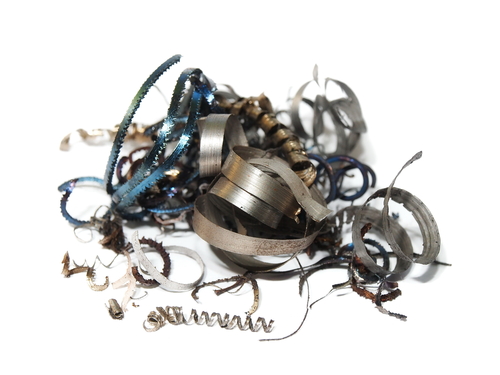Scrap Metal Basics
Recycling scrap metal is essential for a better environment and is also a profitable business. As per studies, about 500 million tons of metal scrap gets recycled every year worldwide, making it another billion-dollar industry.
If you want to be a part of the scrap industry, you should know about scrap metal basics. It includes ferrous, non-ferrous metals, and some alloys for recycling.
Ferrous Metal
Metals containing iron are called ferrous metals. The scrap metal industry uses ferrous metals considering iron, steel, and stainless steel.
Iron & Steel
Both these metals come from high-contents of iron and carbon. Plus, both are highly magnetic and give over 50% of worldwide scrap metals. Iron is further classified as cast iron and wrought iron.
Cast iron
It comes from 95 to 98% iron, and the remaining part is filled with carbon. It’s mostly used for vehicle engine blocks, sewer hole covers, patio furniture, etc.
Wrought iron
In comparison, wrought iron is more or less 100% iron and is mostly used for wall fencing, main entrance gates, outdoor railings on balconies or stairs, etc.
Steel
Steel is an iron-based metal and the most used item in the recycling industry. Its carbon proportion is only 6 to 7%. Mild steel will show low carbon contents at 0.1 to 0.3%. Carbon steel for recycling will give carbon content at 0.6 to 1.4% in its different forms. This form of steel is mostly in use for cutting tools, knives, drill bits, etc. Recycling iron and steel scrap is a more environment-friendly option due to their low carbon dioxide emission and less energy consumption.
Stainless Steel Recycling
Stainless steel scrap is corrosion & chemical resistant as it comprises nickel plus chromium. It is a common material used in water faucets and surgical tools to counter corrosion. Recycling stainless steel has doubled in the last two decades for scarcity and expensive procurement for its alloys to get a standard stainless steel product.
Non-Ferrous Metal Scrap
Non-ferrous metals like aluminum, copper, and brass, lead, tin, and silver are recyclable scrap metals. Out of these, aluminum and copper are more commonly used in the metal recycling process.
Aluminum
Aluminum’s best alloys are copper and manganese, giving some lightweight, multipurpose, and flexible metal used for rain gutters, beverage cans, aircraft spare parts, etc. It’s the second most recycled scrap after iron and steel.
Copper
Copper is best known for its conductivity and its supple anti-corrosion nature. It’s mostly used in pipes, piping networks, tubes, valves, and wires. Its best alloys are zinc and tin.
Scrap Metal Basic recycling
There are several recycling methods; the most common are separating types of metal depending upon their grades. Then you will come across bailing and transporting scrap metals. In this process, metals get compacted using heavy compactors and then shipped to smelters. The Shearing process involves using hydraulic shears to cut scrap into more shippable sizes.
Conclusion
Knowing scrap metal basics for best recycling is the need of the hour for a better environment, and if it comes with decent earnings, nothing can make it a better business.
Sell Your Scrap At Allied Recycling
Allied Recycling is the number one source for all things scrap metal in Massachusetts & the surrounding area. If you have questions about scrap metal recycling or how much your metal is worth, call our team today at (508) 668-8699 or view our Service Area!

